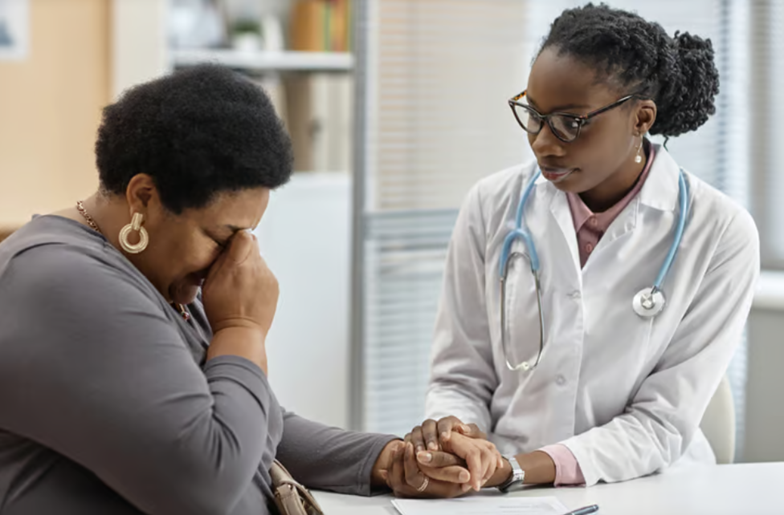Morehouse School of Medicine Launches Pain Equity Course Focused on Racial Healthcare Disparities
The course, one of the first of its kind, aims to equip trainees with the knowledge and tools to understand and address racial health inequities in pain prevention, treatment and management.
By Anastassia Gliadkovskaya, Fierce Healthcare
One of the first pain equity courses for medical students is launching at Morehouse School of Medicine this fall.
The Advil Pain Equity Course was developed by MSM and BLKHLTH, a nonprofit focused on health equity. The course aims to equip trainees with the knowledge and tools to understand and address racial health inequities in pain prevention, treatment and management.
The course offers insights into fostering safe, trustworthy, transparent and empathetic patient-provider interactions. It also emphasizes how to address the unique preferences and needs of Black patients in pain. The course was piloted this summer with medical and physician assistant students at the historically Black medical school, who offered feedback on its content and structure. Additionally, the course was reviewed by physicians and nurse practitioners around the country.
“We know students are future healthcare professionals, and what better time and opportunity to teach them about these concepts and skills than during their education,” Uché Blackstock, MD, founder and CEO of Advancing Health Equity, told Fierce Healthcare. Blackstock is a 2024 Fierce 50 winner.
Advancing Health Equity, a consulting firm that partners with healthcare organizations to foster equitable workplaces, is promoting the course. There are plans to expand the course to other medical schools in 2025, with the ability to customize each program.
The inequitable diagnosis and treatment of pain is a public health issue, disproportionately impacting communities of color. An Advil, Morehouse School of Medicine and BLKHLTH survey of 2,000 Americans found that 93% of Black individuals said pain impacts their daily life, and 83% said they have had a negative experience when seeking help for their pain.
Amid COVID-19 and the Black Lives Matter movement, there has been a growing emphasis on health equity in medicine, Blackstock noted. While med schools began incorporating the topic in training to some extent, “I don’t know any school offhand that has focused curriculum and content about teaching students about this issue of pain inequity,” she said.
Part of promoting the course is elevating this phenomenon to patients so they understand “it’s not their fault and we can really do better by them,” while providers need to better listen to patients and not be dismissive of their experiences. “What I always say is the patients are the experts of their bodies,” Blackstock added.
Blackstock came into medicine during a period where physician prescribing habits around pain medications were changing in light of the opioid epidemic. At the time, opioids were predominantly being overprescribed to white patients, she said. While some might argue that was a positive thing, sparing Black patients from addiction or overdose, Blackstock notes there is a darker side to that reality.
“There is always trauma with not treating someone’s pain,” Blackstock said. Patients with untreated pain are more likely to develop depression and anxiety. They may not be able to go to work. And acute pain could become chronic, particularly if a diagnosis is missed.
“We do know that with our arsenal of pain medications we have out there, including Advil, that it is possible to adequately treat patient’s pain,” Blackstock said.
In 2023, Advil teamed up with BLKHLTH and Morehouse School of Medicine to launch the Advil Pain Equity Project, a multiyear initiative dedicated to promoting equitable and accessible pain relief. The first year of the project was focused on elevating the voices of patients in a storytelling campaign, “Believe My Pain.” The project offers digital tools and resources designed for patients and healthcare professionals, available at BelieveMyPain.com.
Blackstock believes it would be a productive step for students to begin learning about pain equity even before they arrive at medical school. “The earlier that we can get this information and these conversations to our future health professionals, the better,” Blackstock said.


